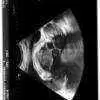-
Welcome to Celiac.com!
You have found your celiac tribe! Join us and ask questions in our forum, share your story, and connect with others.
-
Celiac.com Sponsor (A1):
Celiac.com Sponsor (A1-M):
-
Get Celiac.com Updates:Support Our Content
Do Vitamin/ Mineral Supplements Really Make A Difference?
-
Get Celiac.com Updates:Support Celiac.com:
-
Celiac.com Sponsor (A17):
Celiac.com Sponsor (A17):
Celiac.com Sponsors (A17-M):
-
Recent Activity
-
- Scott Adams replied to MauraBue's topic in Gluten-Free Foods, Products, Shopping & Medications3
Have Tru Joy Sweets Choco Chews been discontinued??
But M&M's contain milk, and would not be at all like a Tootsie Roll. -
- Jmartes71 replied to chrish42's topic in Doctors7
Doctors and Celiac.com
I appreciate you validating me because medical is an issue and it's not ok at all they they do this. Some days I just want to call the news media and just call out these doctors especially when they are supposed to be specialist Downplaying when gluten-free when they should know gluten-free is false negative. Now dealing with other issues and still crickets... -
- Wheatwacked replied to MauraBue's topic in Gluten-Free Foods, Products, Shopping & Medications3
Have Tru Joy Sweets Choco Chews been discontinued??
M&M Peanuts. About the same calories and sugar while M&M Peanuts have fiber, potassium, iron and protein that Tootsie Rolls ("We are currently producing more than 50 million Tootsie Rolls each day.") don't. Click the links to compare nutritional values. Both are made with sugar, not high fructose corn syrup. I use them as a gluten free substitute... -
- Theresa2407 replied to chrish42's topic in Doctors7
Doctors and Celiac.com
I see it everyday on my feeds. They go out and buy gluten-free processed products and wonder why they can't heal their guts. I don't think they take it as a serious immune disease. They pick up things off the internet which is so far out in left field. Some days I would just like to scream. So much better when we had support groups and being able to teach... -
- Scott Adams replied to MauraBue's topic in Gluten-Free Foods, Products, Shopping & Medications3
Have Tru Joy Sweets Choco Chews been discontinued??
Some of the Cocomels are gluten and dairy-free: https://cocomels.com/collections/shop-page
-



Recommended Posts
Archived
This topic is now archived and is closed to further replies.